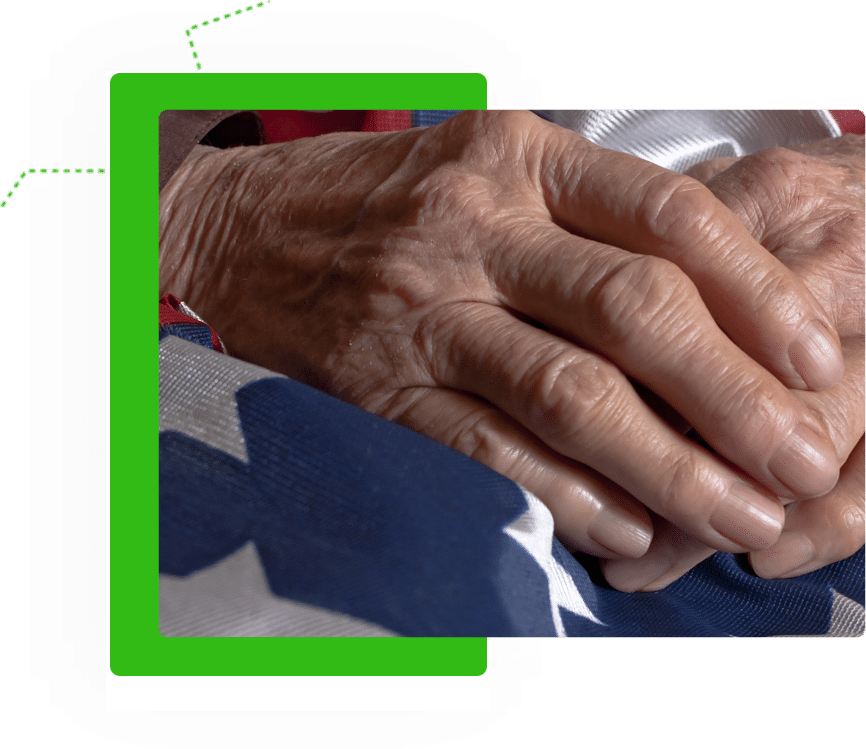Veteran Substance Abuse Program
Ambrosia’s Veterans Substance Abuse Program is specialized treatment aimed at assisting former military personnel who struggle with drug and alcohol addiction.
This program was created in response to the high rates of drug and alcohol addiction among veterans. Many individuals who have served in the military experience trauma, both physical and emotional, that can lead to addiction as a coping mechanism. Ambrosia has recognized this issue and offers a variety of options for treatment and support in South Florida.
Why Are Veterans More Prone to Substance Misuse and Addiction?

Drug Rehab for Veterans: Overcoming Unique Challenges
In addition to traditional treatment approaches, it is also essential for veterans to receive care from professionals who have experience working with this population. They understand the complexities of military service and can provide tailored support and interventions that are effective in helping veterans overcome addiction.
A key component of drug rehab for veterans is trauma-focused care. This approach recognizes the impact that traumatic events can have on a veteran’s mental health. By addressing and processing these traumas, veterans can learn healthier coping mechanisms and reduce their reliance on drugs or alcohol.
Many veterans may come from families with a history of addiction, making them more vulnerable to developing substance abuse issues themselves. Our program focuses on addressing the veteran’s addiction and educating and involving their loved ones in the recovery process. This can help create a supportive and understanding environment for the veteran as they navigate their journey toward sobriety.
Veterans may also struggle with mental health conditions such as the following:
- Obsessive-compulsive disorder
- Post-traumatic stress disorder
- Borderline personality disorder
- Schizophrenia
- Depression
- Anxiety
These co-occurring disorders must be addressed in treatment to ensure long-term recovery. Our program offers specialized care for dual diagnosis, providing integrated treatment for both substance abuse and mental health issues.
In addition to traditional therapy methods, Ambrosia also incorporates holistic approaches into our veteran’s substance abuse program. These can include mindfulness practices, yoga, nutrition education, and recreational activities. These techniques can help veterans develop healthy coping mechanisms and improve their overall well-being.
Veterans and Substance Abuse Statistics in Florida
In Florida, veterans face significant challenges with substance abuse, influenced by factors such as PTSD, mental health disorders, and the stress of reintegrating into civilian life. Approximately 11% of veterans visiting VA facilities have a substance use disorder.
Alcohol is the most commonly abused substance, with over 80% of veterans with substance use disorders abusing it. Additionally, nearly 27% abuse illegal drugs, and about 7% abuse both alcohol and illegal drugs. Florida, with its large veteran population, offers various resources and support systems to address these issues, but stigma and access barriers remain significant challenges.
In general, veterans face significant challenges with substance abuse, with approximately 11% of those visiting VA facilities having a substance use disorder (SUD). Veterans are more likely to misuse prescription drugs, particularly opioids, due to chronic pain management. Substance abuse among veterans is often linked to mental health issues like PTSD, depression, and anxiety, and is associated with increased risks of homelessness, violence, and suicide.
What Causes Addiction in Veterans?
Veterans have often been exposed to traumatic events during their time in the military. This can include combat experiences, witnessing death or injury, experiencing sexual assault or harassment, and other high-stress situations. These traumatic events can have a lasting impact on one’s mental health and increase the risk of developing conditions like PTSD, depression, and anxiety. To cope with these symptoms and the associated distress, some veterans may turn to drugs or alcohol as a means of self-medication.
Research has shown that genetics play a significant role in addiction. If a veteran has a family history of substance abuse, they may be more vulnerable to developing an addiction themselves. For example, having a parent with an alcohol use disorder increases one’s risk by four times compared to individuals without that family history.
Many veterans struggle with mental health disorders like PTSD, depression, and anxiety. These conditions can make them more susceptible to drug or alcohol abuse as it provides a temporary escape from their symptoms. Without proper treatment, these co-occurring disorders can exacerbate each other and lead to a cycle of addiction.
The transition from military to civilian life can be challenging for many veterans. They may struggle with finding employment, forming new relationships, and adapting to a different lifestyle. This adjustment period can cause stress and feelings of isolation, increasing the risk of turning to substances as a coping mechanism.
Veterans are considered a vulnerable population due to their unique experiences and challenges. As such, they may face specific societal issues that contribute to substance abuse, such as lack of access to adequate healthcare, social stigma, and financial difficulties. These factors can make it harder for veterans to seek help and may contribute to their addiction.
Common Types of Substance Abuse Among Veterans
However, there has been an increase in opioid abuse among veterans in recent years. The VA has reported that between 2002 and 2009, opioid prescriptions increased by almost three times for veterans receiving care from their facilities. Opioid addiction can have severe consequences on physical and mental health, leading to decreased quality of life.
Veterans and Mental Health
Mental health disorders often co-occur with substance abuse in veterans. According to the VA, 20% of veterans with PTSD also have a SUD. Additionally, depression and anxiety are prevalent among veterans, making them more susceptible to developing an addiction. Veterans need to receive proper treatment for both their mental health and substance use issues to improve their overall well-being.
Veterans face significant mental health challenges, with post-traumatic stress disorder (PTSD) and depression being the most widely recognized issues. Approximately 14% to 16% of U.S. service members deployed to Afghanistan and Iraq have been affected by PTSD or depression. Other prevalent mental health concerns include suicide, traumatic brain injury (TBI), and substance use disorders (SUD). These issues often arise from combat exposure, the stress of military service, and the transition to civilian life. The impact of these mental health challenges extends to veterans’ families, affecting their overall well-being and social dynamics.
Co-occurring Disorders and PTSD
Co-occurring disorders are a common issue among veterans. PTSD and substance use disorder often go hand in hand, with one exacerbating the other. For example, alcohol may provide temporary relief from PTSD symptoms such as hyperarousal and intrusive thoughts. However, long-term use can worsen those symptoms and lead to addiction.
Healthcare providers must address both mental health and substance use issues simultaneously to effectively treat co-occurring disorders in veterans. This integrated approach has been shown to result in better outcomes for individuals with dual diagnoses.
Treatment for Veterans With Substance Use Disorders (SUDs)
Some of the treatment options provided by Ambrosia Behavioral Health for veterans include:
- Medication-Assisted Treatment (MAT): This approach combines medication with therapy to manage withdrawal symptoms and prevent relapse in individuals with opioid or alcohol use disorder.
- Cognitive Behavioral Therapy (CBT): CBT is a highly effective form of therapy that helps individuals identify and change negative thought patterns and behaviors associated with substance abuse.
- Eye Movement Desensitization and Reprocessing (EMDR): EMDR is a specialized therapy used to treat trauma, particularly PTSD. It involves guided eye movements to help individuals process and cope with traumatic memories.
- Support Groups: Ambrosia Behavioral Health offers various support groups specifically designed for veterans, providing them with a supportive community of peers who understand their experiences.
In addition to these treatment options, Ambrosia Behavioral Health also provides comprehensive care and support through individualized treatment plans, relapse prevention strategies, aftercare planning, and family therapy. Our goal is to help veterans overcome substance abuse and achieve lasting recovery while addressing their unique needs and challenges. So if you or a loved one are struggling with addiction as a veteran, know that there is hope and help available.

What Can I Do for My Loved One If They’re a Veteran Facing Addiction?
- Educate yourself about substance use disorders and the unique challenges faced by veterans.
- Encourage them to seek professional help, and offer to assist them in finding treatment options that cater specifically to veterans.
- Be patient and understanding, as overcoming addiction is a long process and may involve setbacks.
- Advocate for better resources and support for veterans facing substance abuse issues.
- Take care of your mental health by seeking support and practicing self-care activities.
Remember, supporting someone through their recovery journey can be emotionally taxing, so it is important to take care of yourself as well. With the right support and treatment, recovery is possible for veterans struggling with substance abuse.
We Help Veterans at Ambrosia
If you or a loved one is struggling with addiction as a veteran, reach out to us today for help. We are here for you every step of the way on your journey towards healing and recovery. Remember, you are not alone in this battle, and together we can overcome it. Let us honor our veterans’ sacrifices by providing them with the help they need toward a healthier and happier life.

Dr. Alam is an internationally renowned psychiatrist with academic affiliations with Northwestern University and University of Illinois, Chicago where he completed his residency training. He has been a principal investigator for over forty studies and has been involved in research leading to the approval of most psychiatric medications currently on the market. He is the founder of the Neuroscience Research Institute which continues to conduct research on cutting edge medication and interventional psychiatry. Dr. Alam is a Distinguished Fellow of the American Psychiatric Association and the American Society of Addiction Medicine. He has won several awards and has been featured extensively on radio and television.










